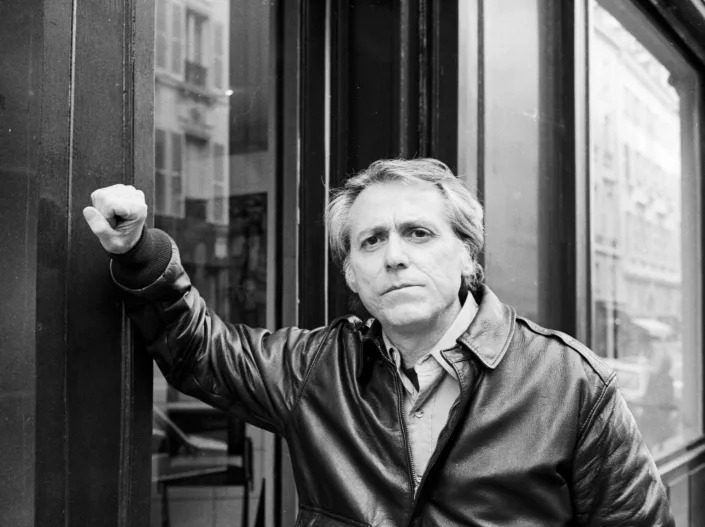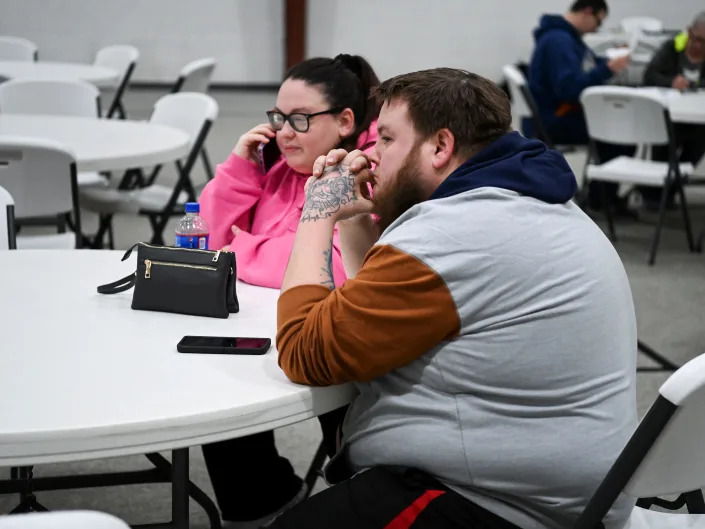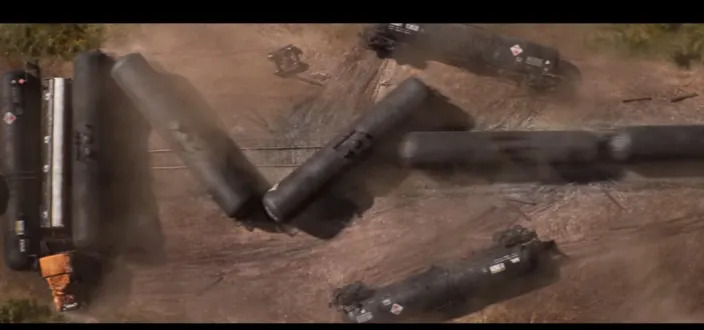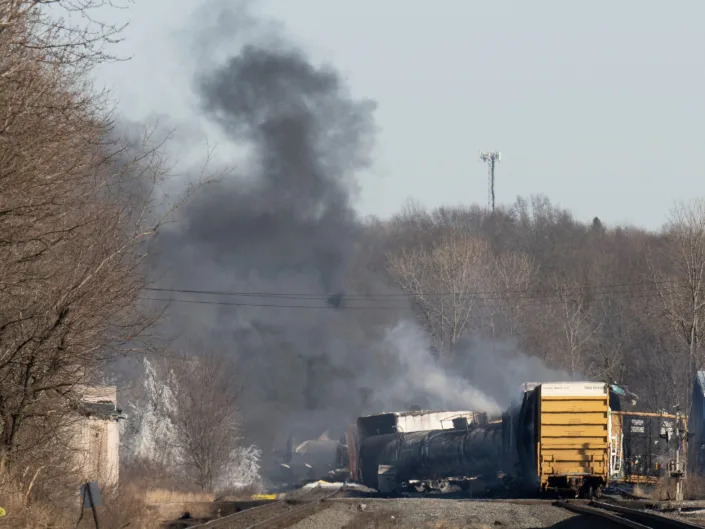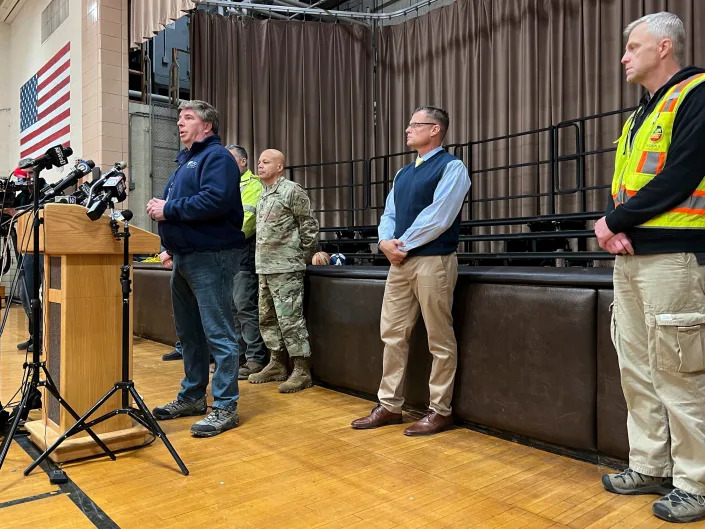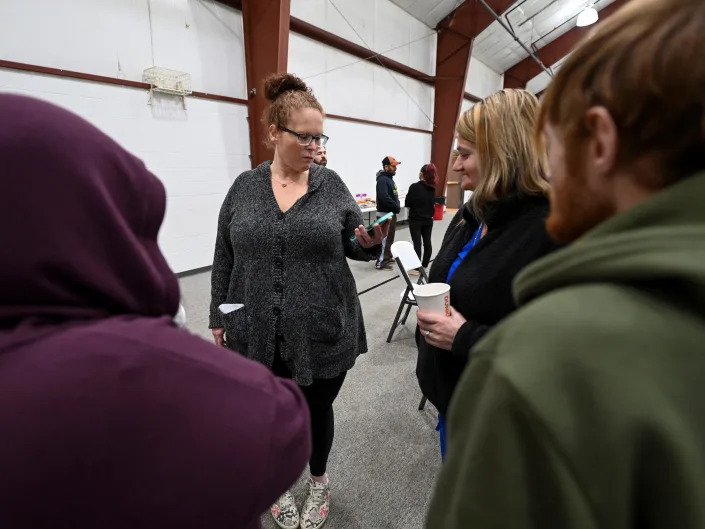Wednesday was far bigger than the two previous days of workplace action for Palestine
SOCIALIST WORKER
Wednesday 07 February 2024

Students march through south London on the day of action for Palestine
Workers and students staged protests for Palestine on Wednesday at hospitals, schools, universities, council offices and other workplaces.
The day of action, called by the Stop The War Coalition (STWC), began with postal workers protesting outside Whitechapel office in east London.
In Oxford, too, postal workers showed brilliant support for the day of action. They took dozens of selfies of themselves holding signs demanding a ceasefire and showing support for Palestine.
Keith Hamilton, an area union rep for the CWU, was central to the action. He told Socialist Worker that he’d spoken to dozens of people about Palestine in the run-up to the day of action.
“I explained my take on the situation to them and they responded,” he said. “I said what was happening in Palestine was a slaughter. Thousands of children are being killed by a doctrine of collective punishment.
“And I invited people to do their own research, rather than just take their news from the BBC.”
Keith printed up placards for the day and, outside work time, he took lots of pictures of his colleagues holding them. “I was taken back by the size of the response,” he said. “It all goes to show that if you talk politics in the workplace, you can make a difference.”
Dana, UCU rep at Oxford Brookes University, organised a rally outside her workplace. She told Socialist Worker, “Around 20 people attended the demonstration at Brookes. We thought we had to come out and protest for Palestine.
“At the organising assembly I met other people at Brookes who wanted to do something. We set up a WhatsApp group and the Brookes rally developed from that. I was out on the last set of strikes at Brookes and now I’m out for Palestine.”
Rebecca, an NHS doctor in Oxford who visits Gaza regularly, told Socialist Worker, “As people watch Gazans being killed, people need to raise their voices.
“I’ve been part of Gaza Medic Voices which has been holding vigils for killed healthcare workers across Britain. I can’t describe how positive the solidarity has been for Palestine. They’ve commented to us how much of a difference solidarity makes. So unions have a huge role to play.”
Health workers protested outside around 15 hospitals, organised by Health Workers For Palestine and other groups
Around 60 health workers and medical students protested at St George’s hospital in south London. Organiser Max said the mood was “energetic”. “It was a great turnout, especially as there was some difficulty giving out leaflets in advance,” he said.
“We focused on the health workers in Gaza that have been killed–and the need for international solidarity. Everyone wanted Britain to stop arming Israel.”
The protest at Poole hospital, in Dorset, was a success with over 50 people joining in. “We got a lot of health workers there, mostly doctors from the hospital but also some from local GP surgeries,” organiser Carrie told Socialist Worker.

Full coverage of the struggle in Palestine
“This is the first protest I’ve ever organised and the first one at the hospital, so it was a big step. Management tried to shut it down. They even called me to ask me to call it off, but I refused.”
People at the protest were so happy at the chance to speak out that they’ve decided to make the Palestine protests monthly. “The mood around the hospital was very supportive. Staff were grateful that we were doing something in solidarity,” says Carrie.
But the mood of intimidation did put some people off attending. “I’ve had calls from people saying they really wanted to come, but didn’t want their managers to know,” she added.
“There are many people here that have family in Gaza, or have other connections to Palestine, that we are now discussing a local public meeting too.”

Hospital workers at the Homerton in Hackney, east London
Over 30 health workers protested outside St Thomas’ Hospital in central London. They stood with banners and flags to demand a ceasefire in Gaza, and action from their NHS trust.
Noor, a doctor in A&E, told Socialist Worker, “As healthcare workers we have to be the voices for those Israel has murdered, especially healthcare workers.
“Healthcare is no longer functioning in Gaza and Israel is targeting health workers on purpose.”
Noor added, “We’re limited on our own but at a trust level we can make a difference, but it’s up to us to push and mobilise to make that happen.”
Doctor Nasrine added, “We have to make our workplace somewhere that can support Gaza. We will hold our trust to account because it’s supported previous conflicts, but not this one.
“We’re going to continue to pressure our trust to come up with solid plans that can support the rebuilding of healthcare that’s been torn to the ground in Gaza.”
Up to 30 civil service workers in Nottingham held a lunchtime rally in support of Palestine. A speaker for the PCS union attacked the government, saying that the Tories had money to help arm Israel but no money for improving pay.
“The question of social justice is bound up with the question of economic justice,” she said.
In Edinburgh, around 30 PCS civil service union members at the Scottish Government Group joined with members from Leith jobcentre for a rally outside the Victoria Quay building.
They were there to say that PCS stands with Gaza. Some of them went on to the main Edinburgh rally outside the Scottish Parliament.
Camilo Arredondo from the Scottish Government branch and Steve West from the DWP branch addressed that rally.
Around 30 PCS union members working in and around Whitehall staged a lunchtime protest outside Parliament.
In Portsmouth, some 14 workers based in the civic offices joined the lunchtime Stand with Gaza meeting. They agreed to hold monthly “Workers for Palestine” lunchtime drop-ins so we can support each other and build the campaign.
In Hackney, east London, town hall workers staged a lunchtime rally for Palestine. The Unison union branch secretary spoke, as did the Hackney NEU education union branch secretary.
Students were central to the day of action. Over 300 students joined a march from the UAL in Camberwell to Goldsmiths. They chanted, “From New Cross to Gaza—globalise the intifada,” and, “London students, it’s out time, shut it down for Palestine.”
Samira, a Goldsmiths student, said, “We rallied at Goldsmiths and then marched to Deptford Town Hall to deliver hundreds of letters with our demands to management.”
They want Goldsmiths management to protect students’ right to protest, walk out and demonstrate. And they demand the university immediately “divest from surveillance company Nice Ltd” and “commit to a BDS investment policy” and “revoke the IHRA definition of antisemitism immediately” which conflates anti-Zionism with antisemitism.
At Bristol university around 200 people joined a march and then about 30 occupied the Senate House. Campus security stopped others from taking part.
Around 130 students joined a 30-minute walkout for Palestine at Greenshaw Sixth Form in Sutton, south London.
Tommy, one of those involved, told Socialist Worker, “We gathered in a field near the school and chanted ‘Free, Free Palestine” and “From the river to the sea, Palestine will be free”.
Tommy said that he had decided to hold the protest after seeing “Israel killing young people like us in Gaza”. “It’s a policy of genocide where Israeli leaders speak openly of making Gaza ‘unliveable’,” he said.
“It was quite easy to get people involved because they can see the reality every day.”
Tommy built for the day by circulating messages and using a megaphone in the sixth form area on Wednesday morning. He said teachers in the NEU union had been supportive—and, because so many students took part, he didn’t fear disciplinary action.
The agitation for Palestine has brought together students who didn’t know each other before. “We really bonded over this,” said Tommy.
Students plan to go to the next national demonstration in London on 17 February.
“Lots of people want to take action for Palestine, but it takes someone to organise it,” said Tommy. “And then when you do, you can find lots of people who agree with you and want to be part of it too.”
Around 50 people marched down the streets of Oxford chanting for a free Palestine. The march went from Weston Library to Barclays Bank, with students taking over the streets.
An Oxford student said, “I think we need to pressure colleges to call for a cease-fire. Most people are overwhelmingly pro-Palestine but some are fearful about coming out. But we need to mobilise, especially with direct action.”
The bombing of Syria, Iraq and Yemen “is part of a wider escalation of imperialist war”.
Oxford student Joumana said, “We need more direct action. Oxford university has obvious steps it could take. It needs to review all of its financing of Israeli companies. And it hasn’t supported Palestinian students at all. Even in the smallest of steps, it’s falling short.”
“The response to Ukraine was 180 degrees in a different direction. The university is showing that it doesn’t care about Palestinian lives.”
A student from the Palestine Society said, “Actions that demand to be seen and maintain visibility is crucial. When our protests block the streets, it forces people to look.
“But we need to push beyond a ceasefire for Palestinian liberation. Ceasefire is only the first step. The bombing is part of the maintenance of Western imperialism in the Middle East.”
Several areas had Palestine organising assemblies in the run-up to the day of action, including Bristol, Oxford, Liverpool and north London.
Domenica said, “The organising assembly in Oxford helped keep the momentum going. It connected students from an array of colleges and stressed the need for all of Oxford to come out together.”
“It brought together a collection of people. The assembly helped collectively organise and definitely helped in getting more people to the protests.”
Another student said, “The assembly helped to build this protest, especially with getting younger students, and construct the whole day of action in Oxford. We need as many people as possible on board with the cause.
“The organising assembly helped to give people a voice in the conversation. Cross city solidarity is growing.”
Around 200 students and campus trade unionists joined a rally at Glasgow university. They then marched to the central rally at City Chambers.
Olive told Socialist Worker, “We took the road on the march and then blocked the road at Queen Street in the city centre.
“The turnout today was bigger than other recent mobilisations—there’s a real mood for action over Palestine.” The march was organised by the Socialist Worker Student Society and other activists.
Protesters occupied also occupied Glasgow Queen Street Station in the city.
Students in central London raged against their universities’ complicity in genocide—and how management has tried to stop students and staff from speaking about Palestine. A dozen students gathered outside Soas university and tied ribbons with the names of those murdered by the Israeli state written on them around campus.
Lina, a student at Soas, told Socialist Worker, “University bosses preach about decolonisation, but it doesn’t mean anything.
“The police arrested a Soas student last week under terrorism charges for supporting Palestine. Our university said nothing. Instead, when we’ve had protests in the past where they’ve threatened to call the police on us.”
Lina added, “I’m part of the Palestine society at Soas, so we’ve been building the action through that and with other groups.”
Students at Soas tied ribbons with the names of Palestinians who the Israeli state murdered around the campus. They then marched to UCL university.
Group UCL action for Palestine went to the university’s learning centre and renamed it the Refaat Alareer Learning Centre. The Palestinian academic and poet who was murdered by the Israeli state last December was a student at UCL in 2007.
After hearing speeches, students marched to the university principal’s office chanting, “Resistance is justified when a people are occupied.”
Students handed a list of demands for the university, including for it to divest from companies that fuel Israeli apartheid.
Grace, a fine art student at UCL, told Socialist Worker, “It’s disgusting that our university won’t say anything about this genocide. It’s frustrating because they would speak out about Ukraine.
“I think people at the moment are still scared. The security at UCL is always very harsh when we protest. But I think if we keep talking, keep growing our networks, people will feel a lot less scared to stand up.”
Around 400 people joined a student demonstration in Leeds joined by university workers, an RMT union delegation, and a convoy of taxis plus other local workers who had got a leaflet and came to join it.
In Edinburgh student groups and staff mobilised for a walkout on campus.
Stop the War Activists joined students from the Justice for Palestine Society, anti-Zionist Jewish students, climate groups, Socialist Worker Student Society members and many others who gathered in Bristo Square. Around 25 UCU union staff members were present, with the branch banner.
Liam reports, “Healthcare workers joined as well, as we marched from the university to the Scottish Parliament, with around 150 people at the peak. PCS members joined the rally at Parliament later on.
“It was a powerful show of solidarity.”
Alongside workplace and student action, Palestine activists held protests in local areas. Jan from north London, says the protest in Islington was “great”. “We began outside Islington Town Hall and marched to Labour MP Emily Thornberry’s constituency office,” she said.
“There were some amazing watermelon placards and children wrote moving poems, which were posted through the office letterbox. There was some ferocious chanting too. We hope Thornberry heard our fury.”
Wednesday was far bigger than the two previous days of action, with more workers taking some sort of action at their workplaces. Grassroots union members organised in the face of fear and intimidation over speaking out over Palestine in workplaces—and inaction of the majority of the union leaders.
It’s good that the UCU universities and colleges union, the NEU education union and PCS civil service workers’ union backed the day of action.
But the majority of union leaders—including the biggest three, Unison, Unite and GMB—didn’t say anything.
Imagine how much bigger the day would have been if the union leaders had called on their members to organise action.
Wednesday was a springboard for more action, which can build workers’ confidence to take bigger and more militant action. It’s up to workers and students to build on Wednesday in their workplaces to make future mobilisations stronger, and push their union leaders into action.






















